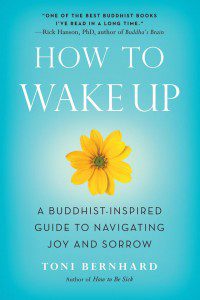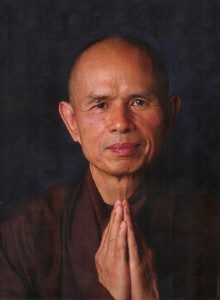 A recent Telegraph column asked if mindfulness lives up to its hype. The author, Polly Vernon, predicts that “mindfulness” will be the OED’s (Oxford English Dictionary) word of the year. That would not surprise me. She goes on to give a favorable if at first skeptical review of the practice. Having experienced it for herself firsthand, she is a convert.
A recent Telegraph column asked if mindfulness lives up to its hype. The author, Polly Vernon, predicts that “mindfulness” will be the OED’s (Oxford English Dictionary) word of the year. That would not surprise me. She goes on to give a favorable if at first skeptical review of the practice. Having experienced it for herself firsthand, she is a convert.
While she waxes about the benefits of mindfulness, she also raises some concerns about how the practice has impacted her life. Is she losing her edge?
Of course, the concern is that I’ll become a boring a— (indeed, that I may have already become a boring a—) what with all the mindfulness. Being a little messy, a little edgy, a thrill-seeking, tricksy, contradictory, unpredictable sort of an article – isn’t that what makes people appealing? Particularly creative people (which I flatter myself I am)? A bit charming, exciting, sexy? Where’s the fun in being moderate? In being judicious and sensible? I hear other people talk about mindfulness, and about how meditation has changed their lives, and I think, “Oh, do f— off!” I hear myself talk about it and I’m not altogether thrilled.
She goes on to say how losing this edge may actually detract from her professional life:
That’s without considering how uneasily mindfulness co-exists with my life as a media trollop. My professional life depends on my not being mindful. On the raging, combative narcissism of a constantly updated Twitter feed. On New and Next and Cool and Scoop! This is the currency of all journalism to an extent – it’s certainly the dark pulse of lifestyle journalism. Being the first one To Know and to let others Know You Know, being perpetually In The Loop, making everyone else feel anxious about Not Knowing, about missing out, getting it wrong, being the last one languishing at the suddenly outmoded party… This is how my game functions, and never more so than now, when the internet has speeded up the lifecycle of trends to a giddying pace. But mindfulness is not about New. Mindfulness is about Now. Mindfulness stands in direct opposition to speculating over what next.
In the popular embrace of mindfulness, there is a sense that the practice will just make everything easier. Life will be a blissful flow of ease, peace, and calm While this can be true, what gets missed is that mindfulness is a disruptive technology. When taken seriously, it’s not about making your life easier it’s about changing your life at the very core of your being. How you see yourself, others, and the rest of the world can radically alter. This is what is meant by waking up out of the consensus trance that we often, almost always, find ourselves within.
To get anywhere close to awakening, we must first overcome our fear of missing out. Vernon offers a lucid description of FOMO and related phenomenon (for those of you not in the know, FOMO stands for “fear of missing out.”)
So I’ll carry on. It’s not as if I have a choice, really – in the loveliest possible way. I’ll keep meditating, keep choosing Now over Next. Even when mindfulness stops being the sexiest, most-talked-about trend of Ever (which it will, probably within weeks of it being declared Word of the Year). Even if it makes me a non-sceptic, and a bit of a boring a—.
I suspect that mindfulness will continue to grow in popularity at least into next year when I have two related books (The Awakened Introvert and Mindfulness A-Z) coming out! Of course, I think it will last longer than that because there is something real at the core of all the hype. While not everyone is becoming a serious practitioner, there are still benefits to initiating the process.
Andrew Olendzki, a powerful voice in secular Buddhism, cautions in a recent Tricycle article that:
True mindfulness training involves learning to entirely disengage from, disidentify with, and become non-attached to the phenomena under review. Neither favoring nor opposing, neither liking nor disliking, the Great Way is not difficult for one with no preferences (to cite the later Chinese text Trust in Mind). Such disengagement is incompatible with corporate, military, and many other secular applications of mindfulness training, however, since it is the very move that opens the way for wisdom.
Mindfulness can lead us to wisdom but only when its “wedge” is inserted deeply into our minds. Mindfulness is often billed as a means of stress reduction but here, too, there are different considerations of stress. Mindfulness practice can certainly help us to cope better with everyday stressors. However, stress is not just the problems confronting you at this moment.
“Stress” is the preferred translation of the Buddha’s term “dukkha” for Bikkhu Bodhi (who has translated volumes of Buddhist texts). This stress is more than just the big ticket items that we think of as stress. Dukkha permeates every waking and perhaps even dreaming moment of being alive. It is like a background radiation that affects everything we think, experience, and perceive.
With enough practice, mindfulness can lead us to the wisdom that recognizes this radiation and has the chops to do something about it. This is Mindfulness with a capital “M” and as I have opined before engaging mindfulness to address the day-to-day stressors open the door to deeper wisdom.
Not everyone is going to take advantage of this deeper possibility with mindfulness and many people, no doubt, will only turn to mindfulness as a way to fine tune the way they are living now and will be no wiser for the effort. Such is the downside of mass popularity.
Still, I think we have a long way to go.

